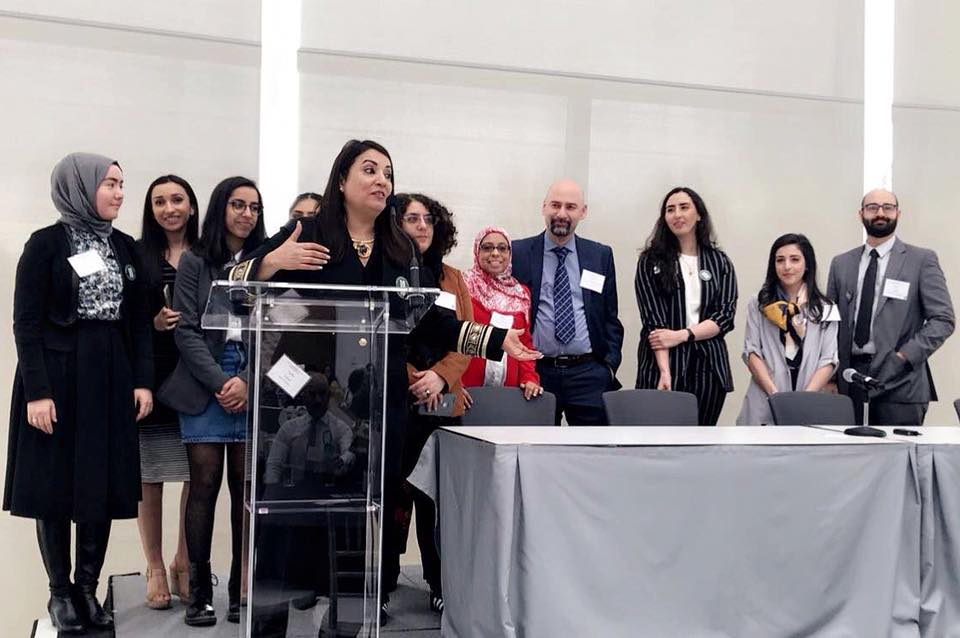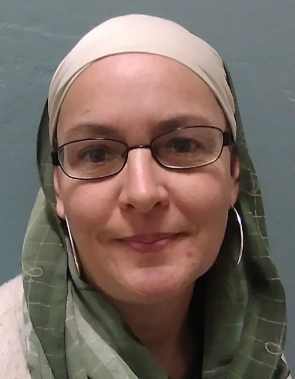
Reflections on the 10th Annual Muslim Mental Health Conference: Strength-based Approaches
By: Sarah Huxtable Mohr
The 10th Annual Muslim Mental Health Conference is a platform for Muslim mental health professionals to gather together, collaborate on new ideas and goals, and strengthen our ties to each other and our common vision of mental health for our community. My interest in Muslim mental health comes from a social work perspective. Social workers focus on a strength-based approach to mental health rather than the deficit-based approach traditionally taken by Western psychology. A strength-based approach focuses on what works – it helps individuals and communities access and build on resources that are already present in their lives. Whether it is religion and spirituality, education, or motivation, a focus on what works allows opportunities to strengthen these individual components in order to expand and improve the whole system.
The call for more research on Muslims has been partially prompted by an increase in Muslim mental health needs due to rising levels of Islamophobia and discrimination post 9/11. This has led to a growing body of work that looks at the impact of Islamophobia, and other forms of discrimination on health outcomes. Examples of this work were showcased at the Annual Muslim Mental Health Conference.
The study of protective factors is a key part of strength-based research in mental health. Protective factors are conditions or attributes (e.g. skills, resources, and coping strategies) that reduce the likelihood of negative health outcomes or reduce the impact of a risk factor. It is particularly important for minority populations who are more likely to internalize negative stereotypes about themselves. For example, many Muslims still fight stereotypes about perceived misogyny and oppression of women in Islam. The study of protective factors receives little attention compared to the study of risk factors, yet knowledge of protective factors can contribute to a better understanding of the strengths of diverse cultural communities in relation to mental health. There is no doubt that research on risk factors is important and crucial for understanding the current Muslim mental health needs of Muslims. However, research on protective factors, that is, strength-based research, needs to come to the fore.
Strength-based research comes with many benefits. First, strength-based research serves as a counter to Islamophobic representations of Muslims and Islam. For example, Dr. Tarek Zidan and Dr. David Hodge’s research on depression and hijab showed that hijab is a protective factor, and is inversely related to depression. Interestingly, their original hypothesis was that hijab contributed to depression. The same finding was also reported by Dr. Lamise Shawahin, and runs counter to stereotypes about Muslim women and the hijab. Panelist Dr. Basmaa Ali commented that while Muslims are 1% of the population, 10% of the news and media stories related to domestic violence is about Muslims. A negative portrayal of Muslims in the press contributes to these preconceived notions and reinforce negative stereotypes about the community – something strength-based research can amend.
Second, strength-based research helps us to become advocates for the Muslim community. The call to advocacy was echoed by speakers throughout the conference – including Dr. Mona Amer in her fantastic keynote and Dr. Bill Slaughter. It is part of advocacy to research what makes us strong, healthy, and what dispositions, values, and practices we as Muslims have to offer society at large. Speakers discussed Muslimfest, a celebration of our community’s leadership and unique insights in child mental health, psychotherapy, psychology, and community engagement with the rest of society. The Muslim community stands to benefit immensely from taking a this type of strength-based approach in how we individually and collectively advance societal mental health through research and advocacy.
The hadith that our faith is not complete until we love for others what we love for ourselves continues to inspire me to share the beauty of the Islamic tradition with others. Be it through strength-based research, or any contribution where we share our knowledge and success, we have a duty to get the word out about how good Islam is for mental health. The 10th Annual Muslim Mental Health Conference is just the beginning of this effort. It is an integral part of our advocacy for our community, and part of our duty to Allah.
CORRECTION: A previous version stated that while Muslims are 1% of the population, 10% of domestic violence research is based on Muslims. In fact, 10% of domestic violence stories on the news and media are about Muslims.
Resources:
Koenig, H. G., and Al Shohaib, S. (2014) Health and Well-Being in Islamic Societies: Background, Research, and Applications. Springer.
Patel, V., and Goodman, A. (2007) Researching protective and promotive factors in mental health. Int. J. Epidemiol. 36, 703–707.
Abdullah, S. (2014) An islamic perspective for strengths-based social work with muslim clients. J. Soc. Work Pract. Addict. 29, 163–172.
Andermann, L. (2010) Culture and the social construction of gender: Mapping the intersection with mental health. Int. Rev. Psychiatry 22, 501–512.
Graham, J. R., Bradshaw, C., and Trew, J. L. (2009) Adapting Social Work in Working with Muslim Clients. Soc. Work Educ. 28, 544–561.
Graham, J. R., Bradshaw, C., and Trew, J. L. (2010) Cultural considerations for social service agencies working with Muslim clients. Soc. Work. 55, 337–346.
Hodge, D. R., Zidan, T., and Husain, A. (2016) Depression among Muslims in the United States: Examining the Role of Discrimination and Spirituality as Risk and Protective Factors. Soc. Work. 61, 45–52.
Amer, M. M., and Bagasra, A. (2013) Psychological research with Muslim Americans in the age of Islamophobia: Trends, challenges, and recommendations. Am. Psychol. 68, 134–144.
Disha, I., Cavendish, J. C., and King, R. D. (2011) Historical Events and Spaces of Hate: Hate Crimes against Arabs and Muslims in Post-9/11 America. Soc. Probl. 58, 21–46.
Epstein, N., and Epstein. (2011) Anti-Muslim discrimination in post 9/11 America. Moment 36, 52.
About the Author:

Sarah Mohr is an Associate Clinical Social Worker and Certified Drug and Alcohol counselor who works in the SF Bay Area as a case manager for at-risk youth. She focuses in her work on positive psychology, with a client-centered, strength-based orientation, building on and supporting wellness and empowerment in individuals and communities.
